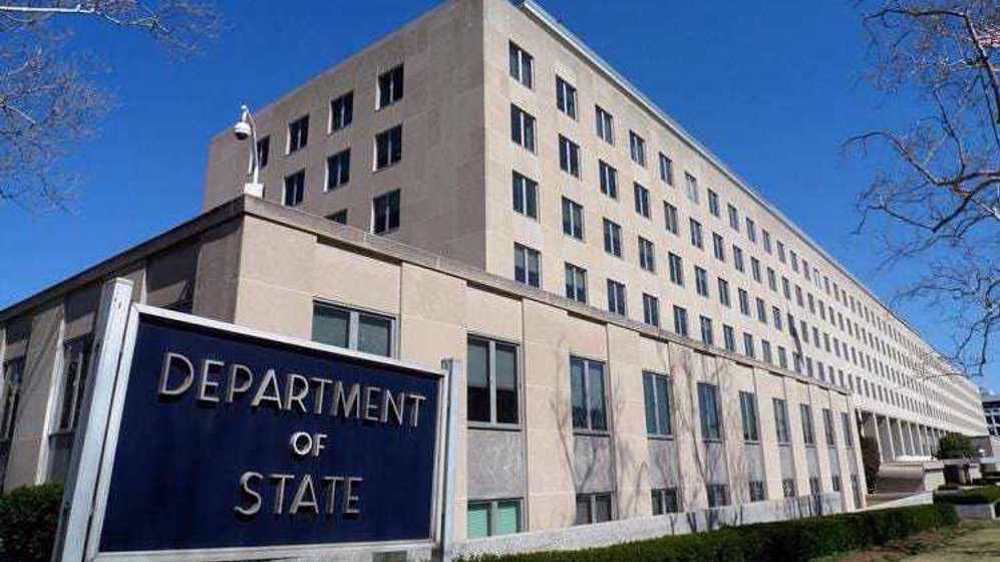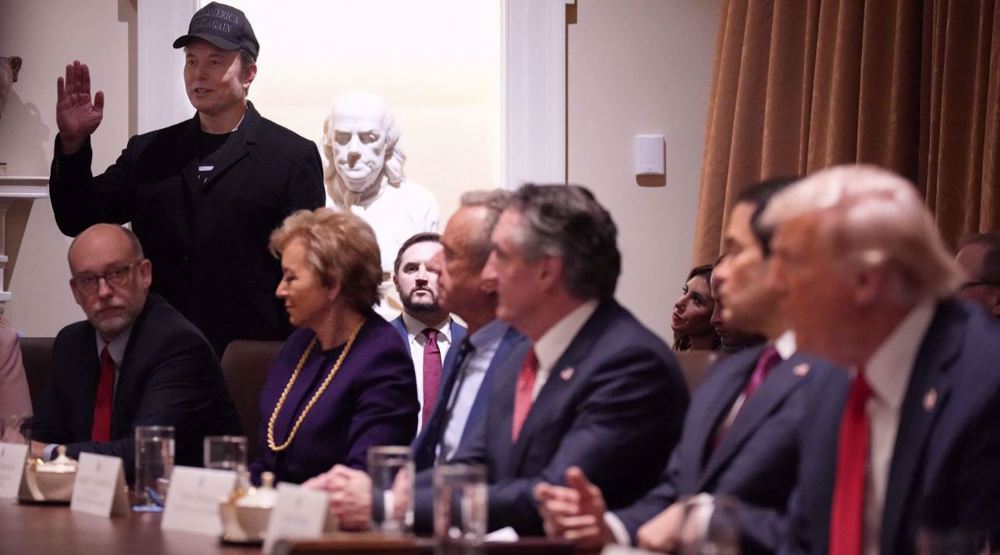Pompeo to visit Israel to discuss Iran influence, W Bank annexation
US Secretary of State Mike Pompeo will visit Israel Wednesday to discuss “regional security issues” linked to “Iran’s malign influence” as well as the Zionist regime’s planned annexation of Palestinian West Bank region, the State Department has announced.
Pompeo will “discuss US and Israeli efforts to fight the COVID-19 pandemic, as well as regional security issues related to Iran’s malign influence,” said State Department spokeswoman Morgan Ortagus in a Friday statement as quoted in an AP report on Saturday.
“The US commitment to Israel has never been stronger than under President Trump’s leadership,” the statement insisted, further claiming: “The United States and Israel will face threats to the security and prosperity of our peoples together. In challenging times, we stand by our friends, and our friends stand by us.”
Moreover, the top US diplomat for the Middle East David Schenker was also cited in the report as adding that Pompeo’s upcoming trip to the occupied Palestine was “at the invitation of the Israeli government,” emphasizing that threats posed by Iran to Israel, the Middle East and beyond would be a prime topic of conversation.
Schenker, however, declined to comment on the status of the annexation discussions, noting that a joint US-Israeli mapping committee had not yet completed its work in determining the specific boundaries that might be proposed by Israeli regime or accepted by Washington.
West Bank annexation tied to Trump’s bid to win re-election
This is while American advocates of West Bank’s annexation believe “they have a narrow window to redraw the Mideast map before November's US presidential election,” according to the report, which further noted: “They also believe it would give Trump a boost with pro-Israel voters, particularly the politically influential evangelical Christian community.”
The report also points out the probable Democratic presidential nominee Joe Biden – with a track record of unconditional support for the Israeli regime -- has claimed opposition to “unilateral moves by Israel in keeping with what had been decades of US policy prior to Trump.”
Meanwhile, Israeli Prime Minister Benjamin Netanyahu’s plan to permanently annex portions of occupied West Bank has been met with harsh criticism from nearly the entire international community, including Washington’s European allies and client Arab dictatorships, with the prominent exception of the US.
On Saturday, a network of pro-Palestinian European groups called on the European Union to slap sanctions on the Israeli regime over its controversial proposal to annex much of the occupied West Bank, saying the move is part of the regime’s ongoing ethnic cleansing, apartheid and colonization policies.
The European Coordination of Committees and Associations for Palestine (ECCP), in a letter addressed to the EU foreign policy chief, Josep Borrell, said “immediate actions, including sanctions, need to be taken” to confront Israel’s unilateral land grab and annexation plans.
Trump administration’s much-publicized – though widely rejected -- Mideast “peace plan” would consent to US recognition of such annexations on purported condition of Israeli agreement to engage in negotiations on the professed creation of a Palestinian state with limited autonomy on a tiny fraction of its own land.
The Palestinians, however, have rejected the overtly one-sided proposal outright.
Prominent Palestinian Islamic resistance movement, Hamas, meanwhile, has urged all Palestinian forces to join hands and confront the Israeli regime’s plan to annex much of the occupied West Bank.
“The annexation project in the West Bank is the most dangerous Judaization plan targeting the Palestinian land, and it constitutes the theft of 38 percent of the West Bank,” Hamas spokesman Abdul-Latif Qanua declared on Thursday.
Pompeo to also raise China concerns
Furthermore, Schenker also underlined that Pompeo further intends to raise Washington’s concerns about potential Israeli commercial activity with china, saying: “Business with the Chinese is an issue of concern for us with Israel and across the region. We speak often to our friends in Israel about these risks.”
He went on to reiterate in a conference call with reporters that Pompeo’s visit was to show the strong US-Israeli ties, saying: “We’re such a close ally, I think it’s important.”
According to the report, the top US diplomat will make the “lightning trip to Jerusalem (al-Quds)” to see Netanyahu and his new coalition partner Benny Gantz on Wednesday as the Trump administration “tries to return to business as normal by resuming governmental travel and reopening an economy devastated by the COVID-19 outbreak.”
It further noted that the State Department formally announced the trip more than a week after plans for it first surfaced and a day after some Israeli media outlets reported it.
Pompeo will stay in the occupied territories only several hours on Wednesday before returning to Washington from his first overseas trip since making an unannounced visit to Afghanistan in March.
His arrival will coincide with the swearing-in of the regime’s new government, which is expected to be sworn in on May 13.
After battling to a stalemate in three inconclusive elections over the past year, Netanyahu and his chief rival, former army chief Gantz, agreed last month to form a joint administration.
Under the deal, Netanyahu serves as prime minister while Gantz holds the new position of “alternate prime minister,” giving each side effective veto power over the other. The pair agreed to trade positions after 18 months.
Israel's ‘internal security agency’ acknowledges failure to prevent al-Aqsa Storm
Russia: Threats of using military force against Iran’s nuclear sites ‘unacceptable’
VIDEO | Ramadan in Iran
VIDEO | Trump's controversial moves
VIDEO | Yemen downs 15th sophisticated American drone; vows to keep up support for Gaza, Lebanon
Power generated by Iran’s only nuclear plant at over $8bn: Report
Israel’s Ben Gvir to Netanyahu: Bomb aid deliveries into Gaza
VIDEO | Israel seizes administration of Ibrahimi Mosque, sparking Palestinian outrage











 This makes it easy to access the Press TV website
This makes it easy to access the Press TV website